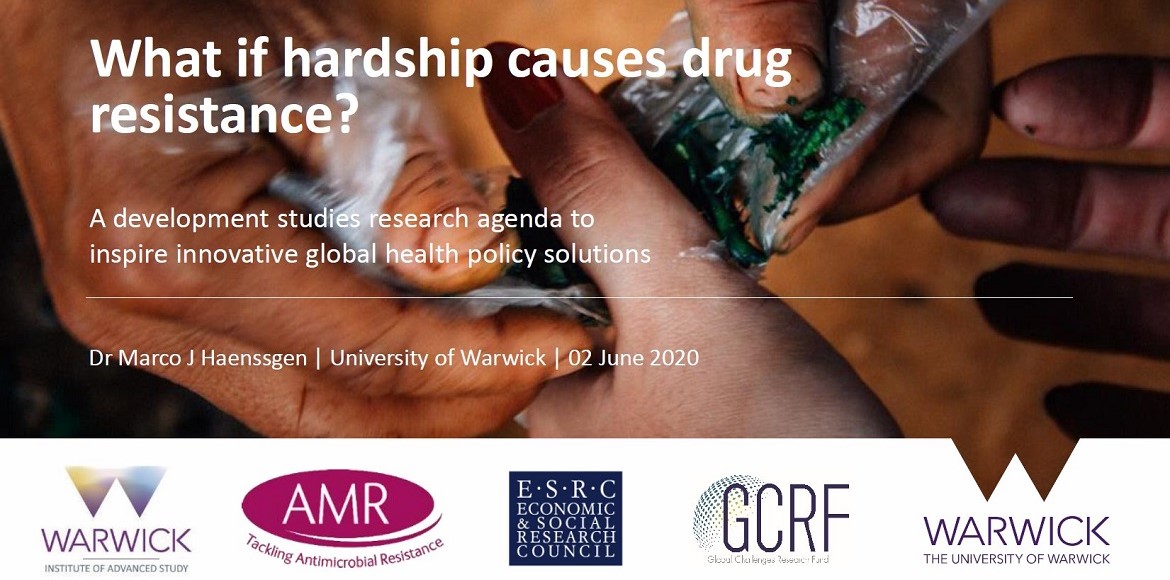Global Sustainable Development News
What if hardship causes drug resistance?

On Tuesday 2 June 2020, GSD Assistant Professor Dr Marco J Haenssgen presented a talk entitled “What if hardship causes drug resistance?” to the prestigious Antimicrobial Resistance (AMR) Centre Seminar at the London School of Hygiene and Tropical Medicine (LSHTM).
Drawing on his interdisciplinary research in global sustainable development, Dr Haenssgen’s seminar highlighted persistent policy challenges in the international effort to tackle drug resistance – a global health priority issue. The talk did so by stressing the limitations of conventional approaches to raise awareness and educate the public to improve people’s medicine use and health behaviours (such behaviour includes e.g. the unnecessary use of antibiotics to try to cure a common cold or muscle pain).
Extensive data collected across Asia, especially in Thailand and Laos, demonstrated how people who experience hardship behave in ways that could easily be deemed “irrational” but that can also present a coping strategy in the face of adversity. Living at the economic, social, or geographic margins of society can raise barriers to accessing well-regulated public doctors, while precarious work and living arrangements can foster toxic self-dependence and drive people into “quick fix” solutions that are personally and societally harmful in the long term – even among populations who are not normally considered “poor.” In the presence of such widespread hardship, well-meaning education and awareness messages like “only take [antibiotics] when prescribed to you by a healthcare worker” are likely to remain ineffective, requiring a fresh perspective on policy initiatives that improve livelihoods and support structures for people in low- and middle-income countries.
To develop the necessary policy knowledge of “what works” in broader AMR-sensitive development policy, Dr Haenssgen suggested a range of research directions spanning ethnographic studies of precarity, quasi-experimental research on policy change and medicine consumption, intervention studies of the behavioural externalities surrounding community development initiatives, and more balanced and transparent approaches to evaluating the impact of existing behaviour change programmes.
The seminar recording is available online together with the seminar slides, and data related to this seminar can be accessed for free via the UK Data Service. The LSHTM AMR Seminar routinely hosts key global thinkers on antimicrobial resistance, including the UK Chief Medical Officer Professor Chris Whitty and research leaders such as Professor Clare Chandler and Professor Alex Broom.
